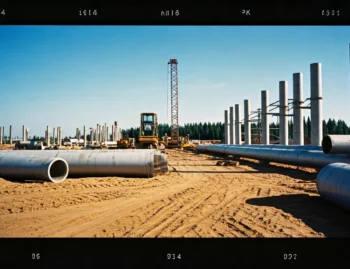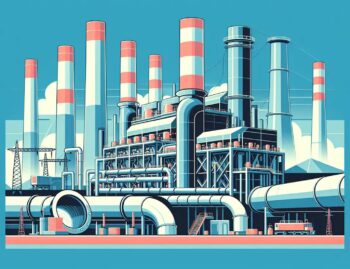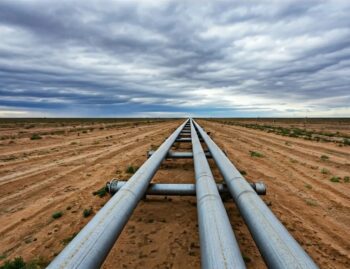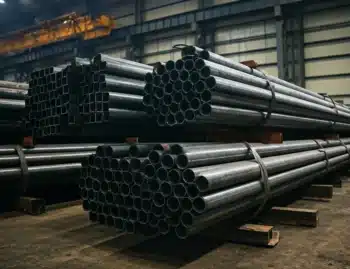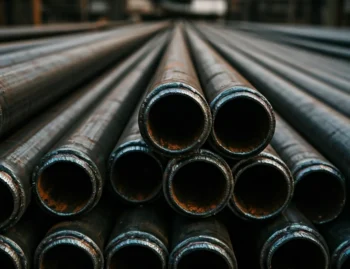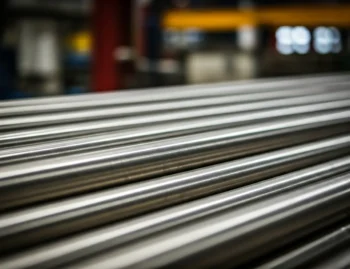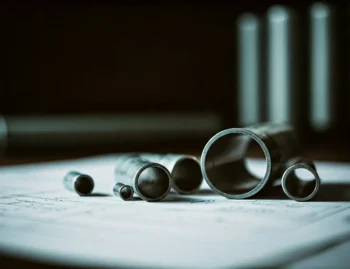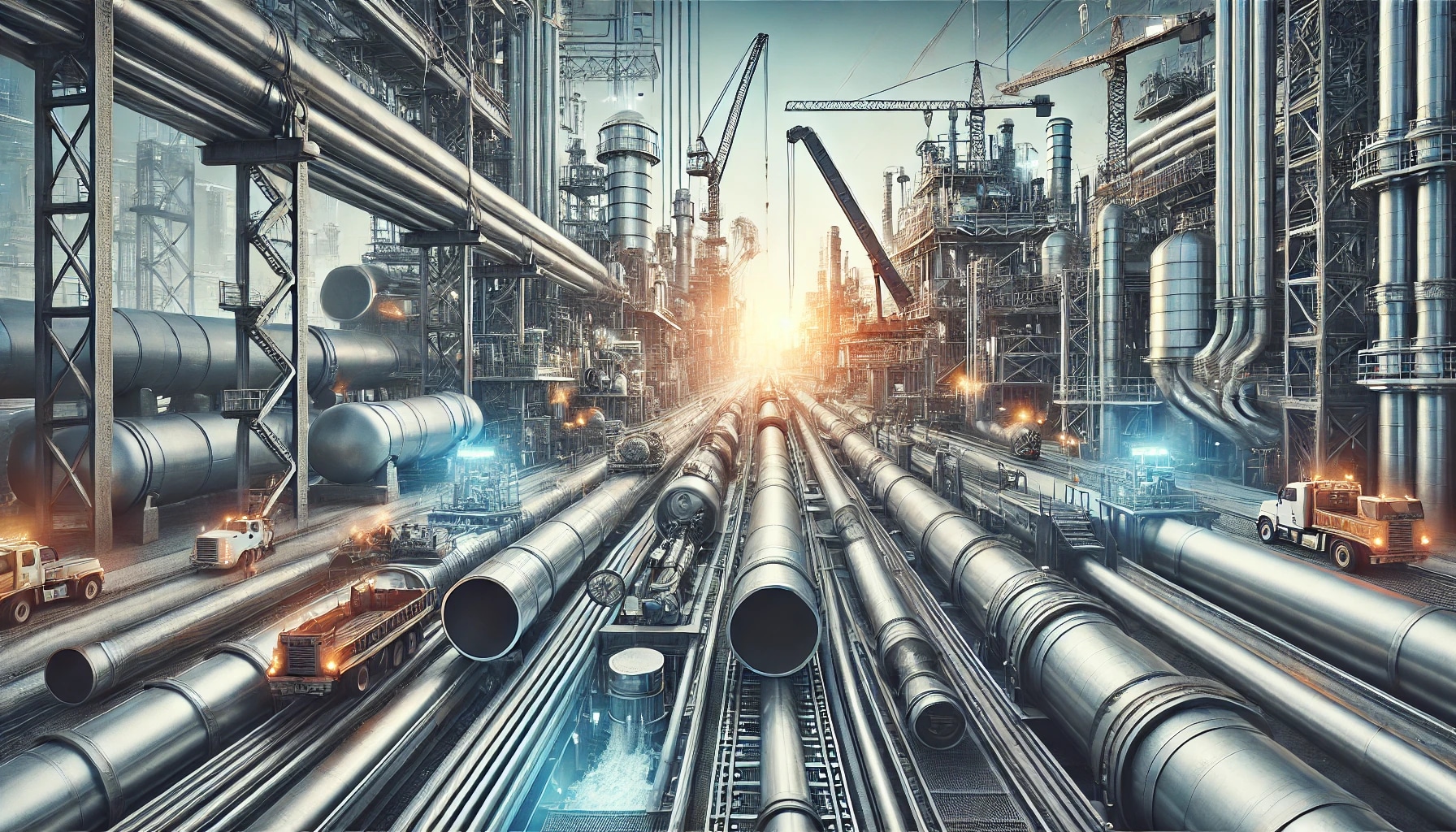
Introduction to Steel Pipes
Steel pipes are a cornerstone in various industrial sectors, offering unmatched durability, versatility, and cost-effectiveness. This article delves into the multifaceted uses of steel pipes, highlighting their critical role in construction, oil & gas, manufacturing, and power generation industries. From structural support to fluid transportation, discover how steel pipes can enhance project efficiency and reliability. Learn about the benefits of choosing steel pipes, including their strength, longevity, and adaptability to custom requirements, making them an indispensable asset for procurement managers, engineers, and project managers.
The Importance of Steel Pipes in Modern Industry
Steel pipes are indispensable in modern industry due to their robustness and adaptability. They are used in a myriad of applications, from transporting fluids to providing structural support. Their ability to withstand extreme conditions, such as high pressure and temperature, makes them a preferred choice in critical industries like oil & gas, construction, and power generation.
Steel pipes are not just about strength; they also offer flexibility in design and application. This versatility allows engineers and project managers to customize solutions that meet specific project requirements. Whether it’s a high-pressure pipeline in an oil refinery or a structural component in a skyscraper, steel pipes deliver performance and reliability.
Key Characteristics of Steel Pipes
Durability
One of the most significant advantages of steel pipes is their durability. They are designed to last for decades, even under harsh conditions. This longevity reduces the need for frequent replacements, saving both time and money. The durability of steel pipes is particularly beneficial in industries where downtime can be costly, such as manufacturing and power generation.
Rust Resistance
Steel pipes are highly resistant to rust and corrosion, thanks to various protective coatings and treatments. This resistance ensures that the pipes maintain their integrity and functionality over time, even when exposed to corrosive environments. For instance, in water treatment facilities, the rust resistance of steel pipes is crucial for maintaining clean and safe water supplies.
Ease of Installation
Steel pipes are relatively easy to install, which can significantly cut down on labor costs and project timelines. Their standardized sizes and fittings make them compatible with various systems, simplifying the installation process. This ease of installation is a significant advantage in large-scale projects where time is of the essence.
Customizability
Steel pipes can be customized to meet specific project requirements, enhancing their versatility. Whether it’s altering the pipe’s diameter, wall thickness, or material composition, customization options are virtually limitless. This adaptability makes steel pipes suitable for a wide range of applications, from small residential plumbing systems to large industrial pipelines.
Steel Pipes in the Construction Industry
Commercial and Residential Buildings
Steel pipes play a vital role in the construction of commercial and residential buildings. They are used in various applications, including plumbing, electrical systems, and structural support. Their strength and durability make them ideal for supporting the weight of multi-story buildings, ensuring safety and stability.
In residential buildings, steel pipes are commonly used in plumbing systems. Their rust resistance ensures that the water supply remains clean and uncontaminated. Additionally, steel pipes are used in electrical systems to protect wiring from damage and reduce the risk of electrical fires.
Learn more about our Solutions for the Construction Industry
Power Plants
In power plants, steel pipes are used for various applications, including cooling systems and structural support. The high-pressure and high-temperature environments in power plants require materials that can withstand extreme conditions, and steel pipes fit the bill perfectly.
Steel pipes are also used in the transportation of steam and other fluids within power plants. Their ability to handle high pressure and temperature ensures efficient and safe operation. Moreover, the durability of steel pipes reduces the need for frequent maintenance, ensuring uninterrupted power generation.
Learn more about our Solutions for the Power Generation Industry
Water and Sewer Systems
Steel pipes are crucial in water and sewer systems due to their durability and resistance to corrosion. They are used to transport water from treatment facilities to residential and commercial buildings, ensuring a clean and reliable water supply.
In sewer systems, steel pipes are used to transport wastewater to treatment facilities. Their strength and resistance to corrosion ensure that the pipes can handle the harsh conditions of wastewater transport without deteriorating. This reliability is essential for maintaining public health and safety.
Manufacturing Facilities
Manufacturing facilities rely on steel pipes for their robustness and ability to handle high-pressure environments. They are used in various applications, including transporting raw materials, cooling systems, and structural support.
In manufacturing processes that involve high temperatures and pressures, such as metal forging and chemical production, steel pipes are indispensable. Their ability to withstand extreme conditions ensures the safety and efficiency of the manufacturing process.
Plumbing Systems
Steel pipes are commonly used in plumbing systems for their strength and reliability. They are used to transport water, gas, and other fluids within buildings, ensuring a consistent and safe supply.
The rust resistance of steel pipes is particularly beneficial in plumbing systems, as it ensures that the water supply remains clean and uncontaminated. Additionally, the durability of steel pipes reduces the need for frequent repairs and replacements, saving time and money.
Electrical Systems
Steel pipes are also used in electrical systems to protect wiring and ensure safety. They are used as conduits to encase electrical wires, protecting them from physical damage and reducing the risk of electrical fires.
The strength and durability of steel pipes make them ideal for use in electrical systems, particularly in commercial and industrial buildings where the electrical load is high. Their ability to withstand extreme conditions ensures the safety and reliability of the electrical system.
Steel Pipes in the Oil and Gas Industry
Transportation of Oil and Gas
Steel pipes are essential for transporting oil and gas, thanks to their ability to withstand high pressure and extreme conditions. They are used in various stages of the oil and gas supply chain, from extraction to transportation and storage.
In the extraction phase, steel pipes are used in drilling operations to transport oil and gas from underground reservoirs to the surface. Their strength and durability ensure that they can handle the high pressures and temperatures encountered during drilling.
In the transportation phase, steel pipes are used to transport oil and gas over long distances. Their ability to withstand high pressure and extreme conditions ensures the safe and efficient transport of these valuable resources.
Learn more about our Solutions for the Oil and Gas Industry
Gathering Lines
Gathering lines are steel pipes used to transport oil or gas from production areas to storage facilities. These pipes are designed to handle the high pressures and temperatures encountered during the initial stages of oil and gas production.
The durability and rust resistance of steel pipes make them ideal for use in gathering lines. They ensure the safe and efficient transport of oil and gas from production areas to storage facilities, reducing the risk of leaks and spills.
Trunk Lines
Trunk lines are large-diameter steel pipes used to transport oil and gas over long distances. These pipes are designed to handle the high pressures and extreme conditions encountered during long-distance transport.
The strength and durability of steel pipes make them ideal for use in trunk lines. They ensure the safe and efficient transport of oil and gas from production areas to refineries and distribution centers, reducing the risk of leaks and spills.
Steel Pipes in the Shipbuilding Industry
Construction of Ships’ Hulls
Steel pipes are used in the construction of ships’ hulls due to their strength and resistance to harsh marine environments. The durability of steel pipes ensures that the hulls can withstand the pressures and stresses encountered during maritime operations.
In addition to their strength, steel pipes are also resistant to corrosion, which is crucial in marine environments. This resistance ensures that the hulls remain intact and functional over time, reducing the need for frequent maintenance and repairs.
Internal Systems
Steel pipes are also used in various internal systems within ships, ensuring durability and reliability. They are used in plumbing, electrical, and HVAC systems, providing essential support and functionality.
In plumbing systems, steel pipes are used to transport water and other fluids within the ship. Their rust resistance ensures that the water supply remains clean and uncontaminated. In electrical systems, steel pipes are used as conduits to protect wiring from damage and reduce the risk of electrical fires.
The versatility and durability of steel pipes make them ideal for use in various internal systems within ships, ensuring the safety and efficiency of maritime operations.
Steel Pipes in the Textile Industry
Machinery and Equipment
In the textile industry, steel pipes are used in machinery and equipment for their durability and ability to handle high-pressure operations. They are used in various stages of textile production, from spinning and weaving to dyeing and finishing.
The strength and durability of steel pipes ensure that the machinery and equipment can handle the high pressures and temperatures encountered during textile production. This reliability is crucial for maintaining the efficiency and safety of the production process.
In addition to their strength, steel pipes are also resistant to corrosion, which is beneficial in the textile industry where chemicals and dyes are commonly used. This resistance ensures that the machinery and equipment remain functional and efficient over time, reducing the need for frequent maintenance and repairs.
Steel Pipes in the Agricultural Industry
Agricultural Fittings and Equipment
Steel pipes are used in agricultural fittings and equipment, providing the necessary strength and durability. They are used in various applications, including irrigation systems, machinery, and structural support.
In irrigation systems, steel pipes are used to transport water to crops, ensuring a consistent and reliable water supply. Their rust resistance ensures that the water remains clean and uncontaminated, promoting healthy crop growth.
In agricultural machinery, steel pipes are used for their strength and ability to handle high-pressure operations. This reliability is crucial for maintaining the efficiency and safety of agricultural operations.
Carbon-Mixed Steel Pipes
Carbon-mixed steel pipes are often used in agricultural applications due to their lightweight yet sturdy nature. The addition of carbon to the steel enhances its strength and durability, making it suitable for various agricultural fittings and equipment.
The versatility and durability of carbon-mixed steel pipes make them ideal for use in agricultural applications, ensuring the efficiency and reliability of agricultural operations.
Steel Pipes in the Chemical Industry
Transporting Chemicals
The chemical industry relies on steel pipes for transporting chemicals, thanks to their resistance to corrosion. Steel pipes are used to transport various chemicals, including acids, bases, and solvents, ensuring safe and efficient transport.
The rust resistance of steel pipes is particularly beneficial in the chemical industry, as it ensures that the chemicals remain uncontaminated during transport. This reliability is crucial for maintaining the safety and efficiency of chemical production processes.
Handling High-Pressure Environments
Steel pipes can handle high-pressure environments, making them suitable for chemical transport. The strength and durability of steel pipes ensure that they can withstand the high pressures and temperatures encountered during chemical transport.
This reliability is crucial for maintaining the safety and efficiency of chemical production processes, reducing the risk of leaks and spills.
Steel Pipes in Water Treatment Facilities
Transporting Water and Other Fluids
Steel pipes are used in water treatment facilities for transporting water and other fluids, ensuring durability and resistance to corrosion. They are used in various stages of water treatment, from intake and filtration to distribution and storage.
The rust resistance of steel pipes is particularly beneficial in water treatment facilities, as it ensures that the water remains clean and uncontaminated. This reliability is crucial for maintaining public health and safety.
In addition to their rust resistance, steel pipes are also durable and can handle high-pressure environments. This strength ensures that the pipes can withstand the pressures and stresses encountered during water treatment, reducing the need for frequent maintenance and repairs.
Steel Pipes in Energy Industries
Power Plants
In power plants, steel pipes are used for various applications, including cooling systems and structural support. The high-pressure and high-temperature environments in power plants require materials that can withstand extreme conditions, and steel pipes fit the bill perfectly.
Steel pipes are also used in the transportation of steam and other fluids within power plants. Their ability to handle high pressure and temperature ensures efficient and safe operation. Moreover, the durability of steel pipes reduces the need for frequent maintenance, ensuring uninterrupted power generation.
Renewable Energy Installations
Steel pipes are also used in renewable energy installations, providing the necessary strength and durability. They are used in various applications, including wind turbines, solar panels, and hydroelectric systems.
In wind turbines, steel pipes are used for structural support, ensuring the stability and efficiency of the turbines. In solar panels, steel pipes are used to support the panels and transport fluids for cooling and heating. In hydroelectric systems, steel pipes are used to transport water and provide structural support.
The versatility and durability of steel pipes make them ideal for use in renewable energy installations, ensuring the efficiency and reliability of renewable energy production.
Additional Benefits of Steel Pipes
Cost-Effectiveness
Steel pipes are cost-effective due to their long service life and minimal need for replacements. This cost-effectiveness is particularly beneficial in industries where downtime can be costly, such as manufacturing and power generation.
The durability and rust resistance of steel pipes ensure that they can withstand harsh conditions and remain functional over time, reducing the need for frequent maintenance and repairs. This reliability translates to cost savings, making steel pipes a financially viable option for various applications.
Structural Purposes
Beyond transport and industrial usage, steel pipes are also used for structural purposes in construction. They provide essential support in modern architecture, ensuring the stability and safety of buildings and infrastructure.
In addition to their strength, steel pipes are also versatile and can be customized to meet specific structural requirements. This adaptability makes them suitable for a wide range of structural applications, from supporting the weight of multi-story buildings to providing stability in bridges and tunnels.
Environmental Resistance
Steel pipes are ideal for use in extreme conditions, such as corrosive environments, low and high temperatures, and high-pressure situations. This versatility makes them suitable for a wide range of applications, from transporting chemicals in the chemical industry to providing structural support in construction.
The rust resistance of steel pipes ensures that they can withstand corrosive environments, reducing the risk of deterioration and failure. Their ability to handle high and low temperatures ensures that they remain functional in various climates, from freezing cold to scorching heat. Additionally, their strength and durability make them suitable for high-pressure environments, ensuring safe and efficient operation.
Conclusion
The Future of Steel Pipes in Industrial Projects
Steel pipes’ combination of strength, durability, and resistance to various environmental factors ensures their continued use across multiple industries. As technology advances, the applications and benefits of steel pipes are expected to expand, making them an indispensable asset for procurement managers, engineers, and project managers.
The versatility and reliability of steel pipes make them suitable for a wide range of applications, from transporting fluids to providing structural support. Their cost-effectiveness and minimal need for maintenance ensure that they remain a financially viable option for various industries.
In the future, the demand for steel pipes is expected to grow, driven by the increasing need for reliable and efficient infrastructure. As industries continue to evolve, steel pipes will play a crucial role in ensuring the safety, efficiency, and reliability of industrial projects.
FAQs
What are the main benefits of using steel pipes in industrial projects?
Steel pipes offer unmatched durability, versatility, and cost-effectiveness. They are resistant to rust and corrosion, easy to install, and can be customized to meet specific project requirements. These characteristics make them suitable for a wide range of applications, from transporting fluids to providing structural support.
How do steel pipes contribute to the efficiency of industrial projects?
Steel pipes contribute to the efficiency of industrial projects by providing reliable and durable solutions for various applications. Their strength and resistance to extreme conditions ensure safe and efficient operation, reducing the need for frequent maintenance and repairs. Additionally, their ease of installation and customizability enhance project efficiency.
What industries rely on steel pipes for their operations?
Steel pipes are used in various industries, including construction, oil & gas, manufacturing, power generation, shipbuilding, textile, agricultural, chemical, and water treatment. Their versatility and reliability make them suitable for a wide range of applications in these industries.
How do steel pipes ensure the safety and reliability of industrial projects?
Steel pipes ensure the safety and reliability of industrial projects by providing durable and robust solutions that can withstand extreme conditions. Their resistance to rust and corrosion ensures that they remain functional over time, reducing the risk of leaks and failures. Additionally, their strength and ability to handle high pressure and temperature ensure safe and efficient operation.
What are the environmental benefits of using steel pipes?
Steel pipes offer environmental benefits due to their resistance to rust and corrosion, which reduces the risk of contamination and pollution. Their durability ensures that they remain functional over time, reducing the need for frequent replacements and minimizing waste. Additionally, steel pipes can be recycled, contributing to sustainability efforts.
How do steel pipes compare to other materials in terms of cost-effectiveness?
Steel pipes are cost-effective due to their long service life and minimal need for replacements. Their durability and resistance to rust and corrosion ensure that they can withstand harsh conditions and remain functional over time, reducing the need for frequent maintenance and repairs. This reliability translates to cost savings, making steel pipes a financially viable option for various applications.


